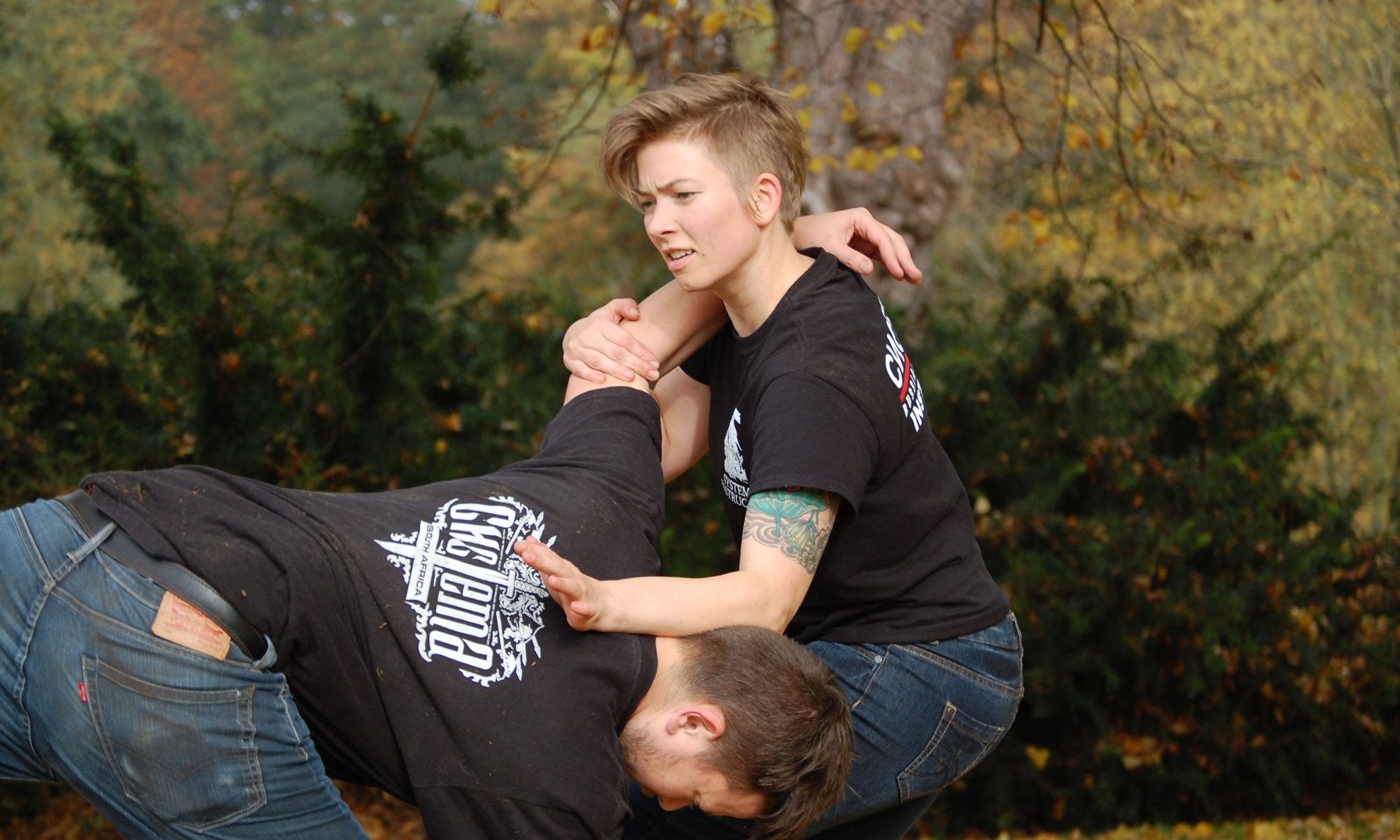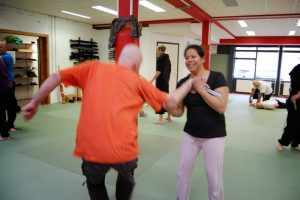Doing serious training can be hard. Especially when you’re tired, your training partner is being an ass or the instructor is just not giving you the right instructions. Unfortunately, you’re in a Systema class and even more than in technique based martial arts: if you want to train well, you’ll have to do it yourself. Better train like you mean it!
It can be difficult though to know how to train, especially when you are only just starting in Systema. Also I notice quite often that people who train for a longer time get too comfortable and stop improving. So here are some pointers.
First of all it is important to realize how to do partner exercises in Systema.
- The speed is often deliberately slow. Make sure you keep the same speed as your partner. If he or she is going too fast or too slow, ask them to adapt. Remember however that the speed in which you train also determines what you are training (see below).
- Ask questions when something is not clear.
- Give your partner what he or she needs to improve. Sometimes this means more speed/punches/pressure (when someone is getting comfortable), sometimes it means less. Be sensitive! Plus you can always ask the person.
Another big thing is that it is important that you actually try to do the exercise. This is especially the case when you already have a lot of experience in other martial arts. I know it feels much nicer to do something that you are able to do. However, the fact that you cannot make something happen right away does not mean that the instructor gave the wrong exercise. Again, ask for clarification when you don’t get the excercise.
To make real progress, you have to be able to observe yourself. When you are able to do this from the start, you should. When this is overwhelming at first, train for a while and try it again.
- The Systema basics (breathing, posture, movement and relaxation) can be explicitly integrated in class, but even if they are not you should observe whether you are able to realize them in the exercises.
- Ideally you remain emotionally neutral during training. This is obviously extremely difficult, so it is easier to start with observing what emotions arise when you work. I find fear, anger, frustration, self pity and enthusiasm most common. The last in particular is often not recognized as having a negative effect on training. Training should be fun right? No. It is nice when it is, but it does not have to be fun. Especially not when this means you get carried away.
- When you are training for some time, it is good to pick a personal learning point, which you can focus on for a longer time. For example posture or breathing. Ideally you focus on this point not only during training, but also in daily life.
Hopefully after a while you find that you are getting the hang of things. The training is less confrontational, you feel more comfortable and are having fun. Make things more difficult for yourself! Or as a Tai Chi master said: invest in loss. Try things you find difficult, find out new things and work with people who you just don’t like to train with. No doubt you will feel as if you have gotten worse, but in reality you are getting better.
As mentioned above, speed is important in training. When you want to learn and integrate new movements, you have to start slow. When you notice you are unable to observe yourself, you have to work slower. Speed up when you want to test what you are already capable of or when you want to train working under pressure. When you do work fast, take the time to notice the things that are going wrong. As already mentioned,when you are comfortable in a drill: speed it up.
Working towards practical application. It is very important to realize training is never what it will be like in ‘real life’. It can help increase your chances of survival or help to get less serious injuries but it will not be the same. If you want realistic training, you should try to get robbed, assaulted or harassed. Nevertheless there are ways to make training less unrealistic. Obviously there are things like speed, multiple opponents and working from the ground. More subtle, but more important maybe is having your partner point out openings. I don’t mean hitting and kicking you whenever they have the chance, but pointing out the possibilities they have to counter.
When you feel like it (and your instructor agrees it is a good idea), you can try doing an exercise while your partner actually does ‘counter’ you when they can. Again, start slow and remain observant of what is not working.
Finally and maybe a little strange after all the previous points. You should not think too much during exercises. Observe yourself, analyze after the exercise, but try to feel the solutions not think them out. In the end you want to teach you body what to do.
Maybe these are a lot of points and I suspect they are not complete. I can guarantee that if you are able to take this with you in training, you’ll learn at least twice as much in the same time. It does take a little more effort though.

